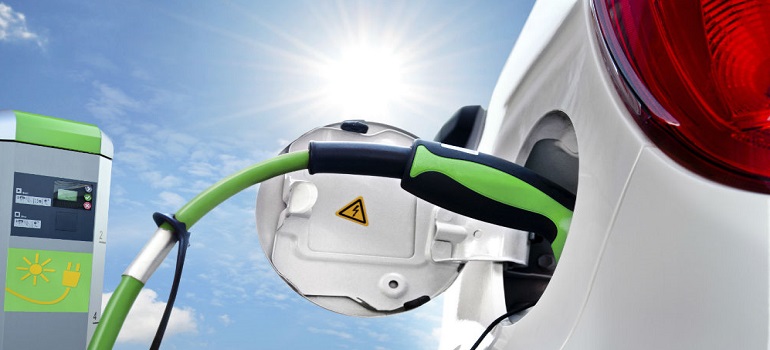Solar-powered microgrids offer clean, reliable energy for electric vehicles, tackling challenges of strained grids and fossil fuel dependence.
Electric vehicles (EVs) are on the rise, with predictions of over 180 million being sold annually by 2044. While this is great news for reducing tailpipe emissions, there are challenges to consider. One major hurdle is the strain EVs can place on electricity grids, especially those already stretched thin or reliant on fossil fuels.
South Africa exemplifies this challenge. The country’s grid suffers from frequent blackouts and a heavy dependence on coal-fired power plants. This means EVs charged on the grid might not be as eco-friendly as hoped.
However, South Africa is also a pioneer in developing solutions. Companies like Zero Carbon Charge are building electric truck charging networks powered by distributed renewable energy microgrids. These microgrids combine solar farms, large-scale energy storage, and high-powered charging outlets. This approach not only addresses the unreliability of the grid but also provides clean, renewable energy for EVs.
The United States is seeing a similar trend, with companies offering grid-independent solar-powered charging solutions, albeit often on a smaller scale. While these solutions offer easy setup, a key challenge is the limited power output of solar panels. Large-scale deployments require significant space, and energy storage is crucial for charging during off-sunlight hours.
Despite these limitations, the need for innovative charging solutions is clear. IDTechEx predicts solar charging systems to capture a significant portion of the off-grid charging infrastructure market by 2034. Other promising technologies include hydrogen fuel cell charging and airborne wind energy (AWE) for distributed power generation.
This shift towards off-grid charging solutions is a positive step for the future of EVs. It ensures a cleaner and more reliable charging experience, especially in regions with underdeveloped or carbon-intensive grids. As EV adoption continues to grow, expect to see further advancements in off-grid charging technologies.


